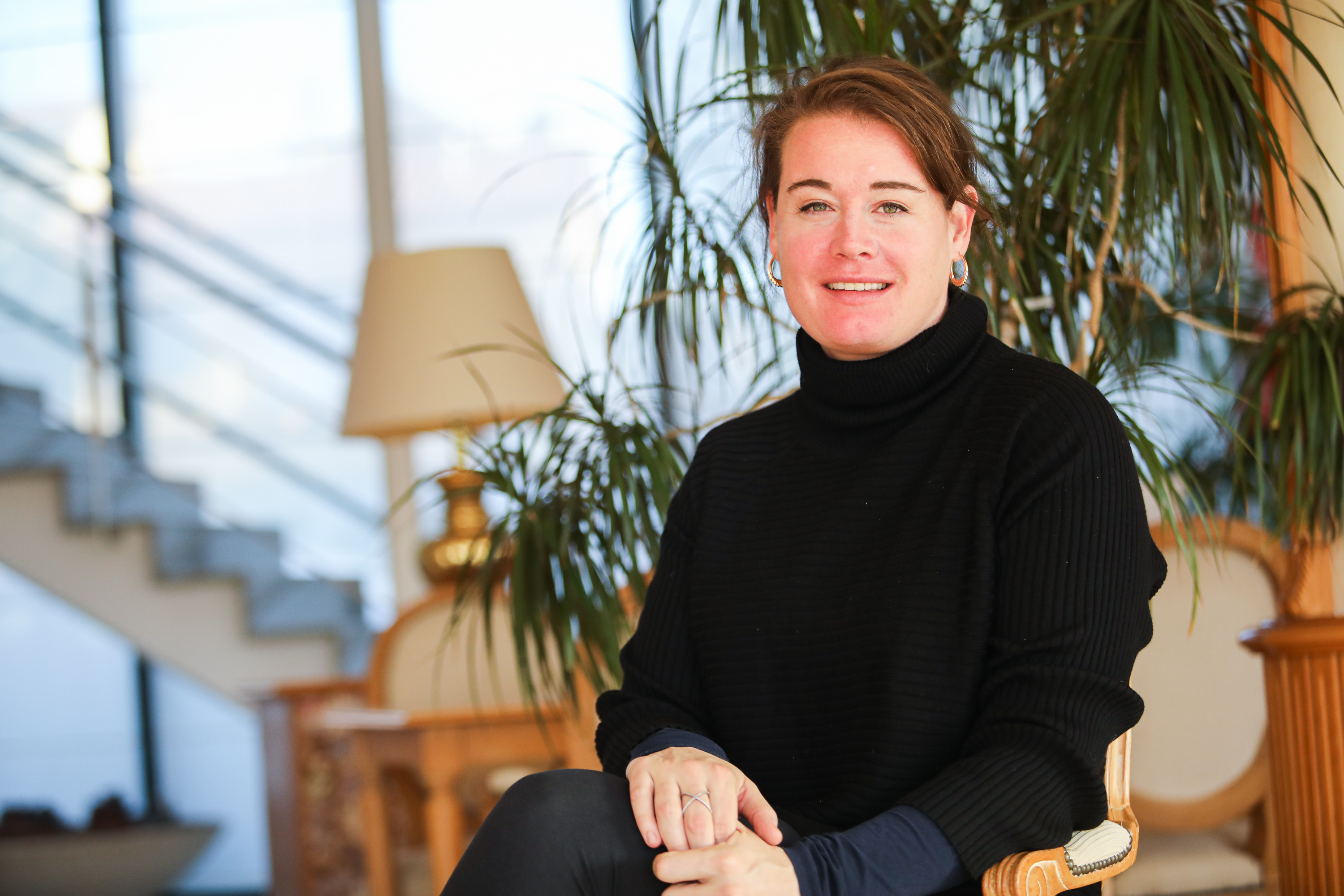Collective residencies / DIVERSITY POLICIES / Olot
SOPHIE GONICK
From Tuesday, 5 November 2019 to Tuesday, 19 November 2019

Bio
Sophie Gonick is an Assistant Professor in the Department of Social & Cultural Analysis at New York University, where she teaches in the Metropolitan Studies Program. She is a scholar of urbanism, immigration, and social movements, with particular attention to questions of race and gender. She studies the relationship between urban development and governance, migrant communities, and grassroots organizing. As an interdisciplinary scholar, she employs both ethnographic and archival methods to understand our contemporary urban worlds. She has also written about squatting and urban informality in Madrid. In 2018, she co-organized and hosted the first Fearless Cities North America, which brought together activists, policymakers, academics, and journalists. Her work has appeared in Antipode, The Avery Review, IJURR: International Journal of Urban and Regional Research, International Labour and Working Class History, and Society & Space. She holds a Ph.D. and a Masters in City Planning (M.C.P.) from the Department of City & Regional Planning from the University of California, Berkeley; and an A.B. from Harvard College.
Project
While in residence, Sophie will be completing work on her manuscript, Against Homeownership: How Migrants Sparked a Movement. The book analyzes the intersection of housing and immigration, with attention to the role of Ecuadorian migrants in the anti-evictions movement in Madrid. The book reveals how migrants can catalyze social movement organizing. In this case, distinct histories with other systems of land and governance, activism, and politics offered alternative interpretations of society and space, sparking one of Spain’s most potent social movements.
Displacement and Community in Olot.
I have been thinking recently about the question of displacement. My field, urban studies and geography, has been particularly taken with the issue in recent years. Indeed, displacement is a pressing issue in Catalunya, where rising housing costs have forced everyday urban dwellers out of historic centers. On a day trip to Girona, I struck up a conversation with a young waiter at a taberna at the edge of the old town about how the tourist industry has affected daily life in this provincial capital. Around the corner hung an enormous banner inciting tourists to be mindful of the ways in which their presence has transformed the urban fabric.
Olot, however, is an interesting place to consider the ways in which displacement elsewhere—and more generally the movement of people and capital—contribute to contemporary urban landscapes. What we see in this small city is the effects of displacement in producing a lively topography of co-existence. According to various pamphlets, over 85 nationalities live in the town, an astounding statistic for a place with fewer than 35,000 inhabitants. This diversity emerges because of the specter of displacement, but in places at a far remove from the scenic hills of volcanic la Garrotxa. Instead, war and violence, the ravages of economic inequality, or the growing terror of climate-related inhabitability have prompted people to leave their homes. In Olot they have created new centers of sociality and exchange.
Several instances stand out to me as illustrating the town’s marked diversity. One night, another resident and I stumbled into a shisha bar next to the glittering new market. There we found groups of people, mostly of Moroccan and sub-Saharan African descent, crowded around small tables. They laughed and chatted above the din of Top-40 music. We ended up seated with a large group of Moroccan men who now lived in nearby Vic. They told us here they were free of the societal pressures they felt back home. A week later, another resident and I were seated at lunch at the Firal, the lively and stately boulevard. Suddenly, dozens of Sikh men and women, dressed in traditional clothing, streamed past. An open truck bedecked in colorful flowers soon followed, with revelers seated on its flatbed. In the middle of a rather lazy Sunday, we caught a glimpse of a celebration of the 550th anniversary of the founder of Sikhism Guru Nanak’s birth. In towns and villages across the world with Sikh populations, similar processions were unfolding. What we witnessed in both instances was how displacement elsewhere had created, paradoxically, community here in Catalunya. We shouldn’t think of ethnic and multiracial diversity in utopic terms, but I think we need to be conscious of the relational processes that contribute to emergent spaces of exchange and co-habitation.
Meanwhile, it is tempting to think of such flows of people and their influence on place as new. Yet wandering Olot one sees evidence, albeit subtle, of historical processes of mobility and emplacement. Chatting with a local, I came to know that Manuel Malagrida, responsible for the extension of the town, made his fortune in part through the transatlantic slave trade. The elegant curves and roundabouts of the newer urban fabric were also built through transnational processes of exchange. In this case, Olot’s prodigal son returned with riches from elsewhere to further the development of his hometown. That history, too, reminds us of Catalunya’s role in historical geographies of empire, race, and exploitation, which in part give rise to current migratory flows. Across from Malagrida’s beautiful villa sits a small housing estate of modest apartment blocks. One morning, as I snapped photos, an African man in traditional garb walked by. In the moment, the past and present of race, place, and mobility converged on the sunny sidewalk of the Eixample de Olot.
